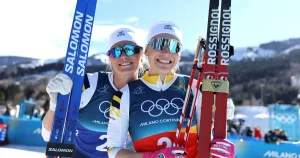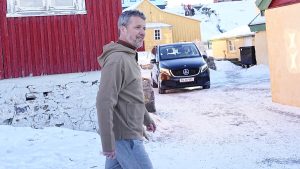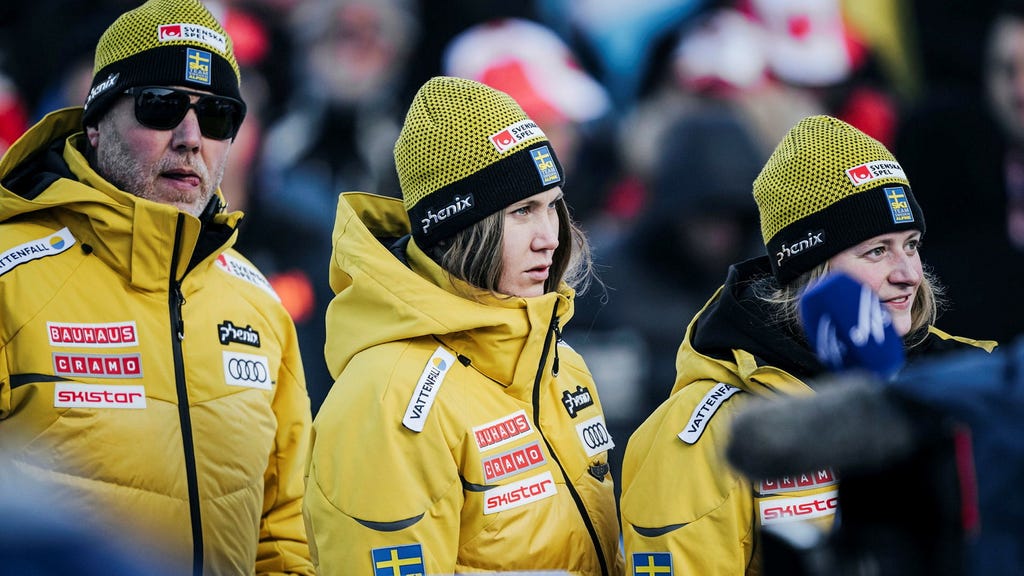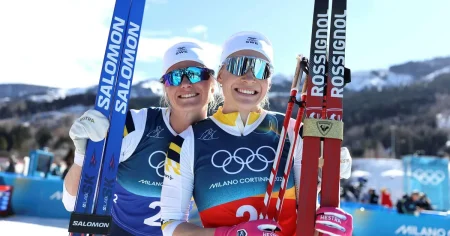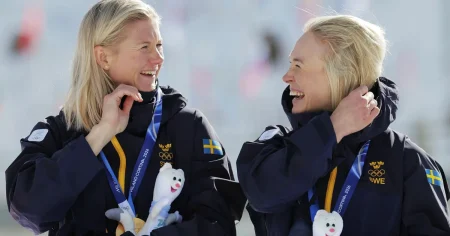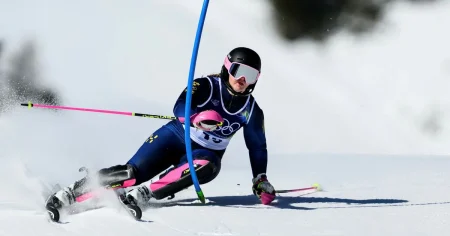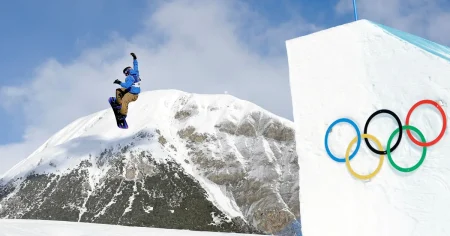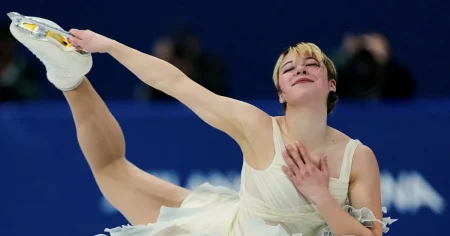The Swedish women’s giant slalom team faced a challenging World Cup race in Kronplatz, Italy, just prior to the World Championships. The straight set course proved difficult for several skiers, resulting in early exits and raising concerns about their form heading into the championships. While Olympic champion Sara Hector qualified for the second run, she ultimately crashed out, highlighting the unpredictable nature of the course. Other members of the team, including Estelle Alphand, Hanna Aronsson Elfman, Hilma Lövblom, and Lisa Nyberg, failed to qualify for the second run, ending their competition prematurely. This disappointing outcome contrasted sharply with their previous performance in Kranjska Gora, Slovenia, where Hector secured a victory and Nyberg impressed with a 13th-place finish.
The underwhelming performance prompted a lengthy discussion between the skiers and acting national team manager Per Jonsson. The team expressed surprise at their struggles, especially given their strong showing in Kranjska Gora. Alphand attributed her difficulties to the straight course setup, admitting she may have skied too cautiously. The team recognized the need to regain their form and confidence before the World Championships, scheduled to begin on February 4th in Saalbach, Austria. The coaching staff also faced the crucial decision of selecting another skier to join Hector in the opening team event. Jonsson summarized the day as disappointing, acknowledging the skiers’ potential while lamenting their inability to translate it into race performance. The team’s collective struggle was evident, with several skiers unable to replicate their prior success. Jonsson’s observations underscored the pressure on the team to rediscover their rhythm before the impending championships.
The impending World Championships cast a long shadow over the team’s performance in Kronplatz. With the final roster announcement looming, the pressure to perform was palpable. Jonsson confirmed that the team selection was nearing completion, emphasizing the need to assess the skiers’ current form and make informed decisions. The subpar results in Italy inevitably added another layer of complexity to the selection process. The coaching staff was left with the difficult task of balancing recent form with overall potential when making their final selections. The disappointing results in the giant slalom event added to the existing uncertainties surrounding the team’s prospects at the World Championships.
The skiers themselves expressed their frustration and disappointment with their performances. Hanna Aronsson Elfman, who had impressed with a tenth-place finish in slalom at the previous World Championships, admitted that her skiing was not where it needed to be. She identified a lack of confidence as a significant factor in her recent struggles, acknowledging the challenge of maintaining a positive mindset when results are not forthcoming. Aronsson Elfman planned to use the time before the championships to recharge and regain her focus. Her comments reflected a broader concern within the team about their current form and the need for a mental reset before the crucial competition. The challenge for Aronsson Elfman and her teammates was to overcome this mental hurdle and rediscover the confidence that had propelled them to success in the past.
Estelle Alphand echoed Aronsson Elfman’s sentiments, acknowledging the team’s need to address their current shortcomings. She emphasized the importance of continuous improvement and the need to work on specific aspects of their skiing. Alphand’s comments highlighted the team’s commitment to addressing their weaknesses and striving for better performances. The team’s struggles in Kronplatz served as a wake-up call, emphasizing the importance of meticulous preparation and the need to refine their technique ahead of the World Championships. The challenging course in Italy provided valuable insights into areas needing improvement, offering crucial lessons for the team to learn from.
The Swedish team’s struggles in Kronplatz underscored the importance of mental fortitude and consistent performance in elite-level skiing. The pressure to perform, compounded by the upcoming World Championships, seemed to weigh heavily on the skiers. The experience served as a reminder of the fluctuations inherent in competitive sports and the need to adapt and overcome challenges. The team’s ability to bounce back from this setback would be crucial in determining their success at the World Championships. The upcoming championships presented an opportunity for the Swedish team to prove their resilience and demonstrate their ability to perform under pressure. Their pre-championship struggles highlighted the importance of mental preparation and the need to maintain a positive outlook in the face of adversity.


